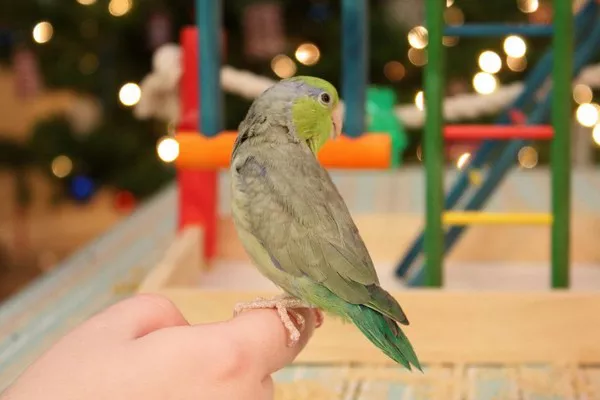Sun Conures, also known as Sun Parakeets, are captivating and lively birds renowned for their striking plumage and affectionate nature. Their diet plays a crucial role in their health and well-being, and treats are an important part of that diet. Treats not only provide enjoyment but also serve as rewards for training and can help with bonding between the bird and its owner. Understanding what treats are best for Sun Conures involves more than just knowing their preferences—it requires knowledge of their nutritional needs and the potential risks of certain foods.
In this article, we will explore the favorite treats of Sun Conures, focusing on their nutritional benefits, potential risks, and how to properly incorporate them into their diet. We will also provide guidelines for selecting and offering treats that promote health and happiness for these vibrant parrots.
Nutritional Needs of Sun Conures
Before diving into specific treats, it’s important to understand the basic nutritional requirements of Sun Conures. A well-balanced diet for these birds includes a variety of foods to ensure they receive essential nutrients. Their diet typically consists of:
Pellets: Formulated to provide a complete and balanced diet.
Fresh Fruits and Vegetables: Essential for vitamins, minerals, and fiber.
Seeds and Nuts: High in fats and should be offered in moderation.
Treats should complement this diet, not replace it. They should be given in moderation to avoid nutritional imbalances and to ensure they do not become a substitute for essential dietary components.
Types of Treats for Sun Conures
Sun Conures enjoy a variety of treats, each offering different flavors and textures. Here are some popular categories of treats and examples of each:
Fresh Fruits
Fresh fruits are often a favorite among Sun Conures due to their sweetness and variety. Fruits provide essential vitamins, minerals, and hydration. However, they should be offered in moderation due to their natural sugar content.
Examples:
Apples: Provide fiber and vitamin C. Remove seeds before offering.
Berries: Strawberries, blueberries, and raspberries are rich in antioxidants.
Bananas: High in potassium, but should be given in small quantities due to high sugar content.
Melons: Watermelon and cantaloupe are hydrating and low in calories.
Vegetables
Vegetables are a great way to offer a crunchy texture and various nutrients. They are generally lower in sugar compared to fruits.
Examples:
Carrots: Rich in beta-carotene and fiber.
Bell Peppers: High in vitamin C and come in a variety of colors.
Broccoli: Provides vitamins A and C, along with calcium.
Sweet Potatoes: A good source of vitamins and fiber, but should be cooked and cooled before serving.
Seeds and Nuts
Seeds and nuts are energy-dense and should be given sparingly. They are high in fat and can contribute to obesity if overfed.
Examples:
Sunflower Seeds: High in fat, so offer in moderation.
Pumpkin Seeds: Rich in magnesium and zinc.
Almonds: Provide healthy fats and protein. Offer unsalted and in small quantities.
Commercial Treats
Many pet stores offer commercially prepared treats specifically designed for parrots. These can include pellets, seed mixes, and baked treats.
Examples:
Pellet Treats: Fortified with vitamins and minerals.
Seed Sticks: Often coated with honey or other flavorings, which should be given in moderation.
Baked Treats: Made from bird-safe ingredients and can be a good source of enrichment.
Foraging Treats
Foraging treats encourage natural behaviors and mental stimulation. These treats are often hidden in toys or puzzles to encourage the bird to search for them.
Examples:
Foraging Balls: Filled with seeds, fruits, or other small treats.
Paper Rolls: Stuffed with treats and hidden within a cardboard roll.
Puzzle Toys: Contain compartments that can be filled with various treats.
Benefits of Treats for Sun Conures
Treats can serve multiple purposes in the care of Sun Conures:
Training and Bonding
Treats are effective tools for positive reinforcement during training. Offering a favorite treat as a reward can help reinforce desired behaviors and strengthen the bond between the bird and its owner. Training sessions can be more enjoyable for both the bird and the owner when treats are used as motivation.
Mental Stimulation
Foraging for treats and interacting with treat-dispensing toys can provide mental stimulation and reduce boredom. This is especially important for intelligent and active birds like Sun Conures, who thrive on mental challenges.
Enrichment
Variety in treats can add to the enrichment of a Sun Conure’s environment. Different textures, flavors, and types of treats can stimulate their senses and prevent behavioral issues related to boredom or stress.
Risks and Considerations
While treats can be beneficial, it’s important to be aware of potential risks:
Nutritional Imbalance
Offering treats in excess can lead to nutritional imbalances. Treats should not make up more than 10-15% of the bird’s daily diet. Over-reliance on treats can result in deficiencies or excesses in certain nutrients.
Obesity
Due to their high fat content, seeds and nuts should be given in moderation to prevent obesity. Sun Conures can be prone to weight gain if their diet is not properly managed.
Toxic Foods
Certain foods are toxic to birds and should never be offered as treats. These include:
Avocado: Contains persin, which is toxic to birds.
Chocolate: Contains theobromine, which is harmful to birds.
Caffeine: Found in coffee, tea, and some sodas, can be harmful.
Alcohol: Toxic and can cause severe health issues.
Pesticides and Chemicals
When offering fresh fruits and vegetables, it’s important to wash them thoroughly to remove any pesticides or chemicals. Organic produce is a good option to reduce exposure to harmful substances.
Guidelines for Offering Treats
To ensure treats contribute positively to a Sun Conure’s diet and well-being, follow these guidelines:
See Also: Why Are Sun Conures So Expensive?
Moderation
Treats should be offered in moderation to prevent overfeeding and ensure a balanced diet. Aim for a treat portion that does not exceed 10-15% of the bird’s daily food intake.
Variety
Offer a variety of treats to provide different flavors, textures, and nutrients. This helps keep the bird engaged and ensures a well-rounded diet.
Safety
Ensure that all treats are safe for birds. Avoid offering foods that are known to be toxic or harmful. Additionally, ensure that treats are served in appropriate sizes to prevent choking hazards.
Freshness
Always provide fresh treats and remove any uneaten food to prevent spoilage and bacterial growth. This is particularly important for fresh fruits and vegetables.
Interaction
Incorporate treats into interactive activities, such as training sessions or foraging puzzles. This not only makes treat time more enjoyable but also provides mental and physical stimulation.
Creating a Balanced Treat Strategy
A well-thought-out treat strategy involves understanding your Sun Conure’s preferences and integrating them into their overall diet in a healthy and balanced way. Here’s a step-by-step approach to creating an effective treat plan:
Assess Preferences
Observe your Sun Conure’s preferences to identify which treats they enjoy most. This can help you tailor the treat options to their tastes and needs.
Plan Treats in Advance
Plan treat offerings as part of the daily or weekly diet. Allocate specific times for treats to avoid overfeeding and ensure that they are part of a balanced diet.
Monitor Health
Regularly monitor your Sun Conure’s weight and overall health. Adjust the quantity and type of treats based on their health status and dietary needs.
Consult with a Veterinarian
Consult with a veterinarian to ensure that the treats you offer are appropriate for your Sun Conure’s health condition. A vet can provide personalized advice on treat choices and quantities based on your bird’s specific needs.
Conclusion
Treats play a valuable role in the lives of Sun Conures, providing enjoyment, enrichment, and motivation for training. By understanding their nutritional needs and preferences, you can offer treats that enhance their well-being while maintaining a balanced diet. It is essential to provide treats in moderation, be mindful of potential risks, and integrate them into a comprehensive care strategy.
By following the guidelines outlined in this article, you can ensure that the treats you offer contribute positively to your Sun Conure’s health and happiness. Treat time should be a rewarding experience that strengthens the bond between you and your feathered friend, while also promoting their overall well-being.
Related Topics:


























